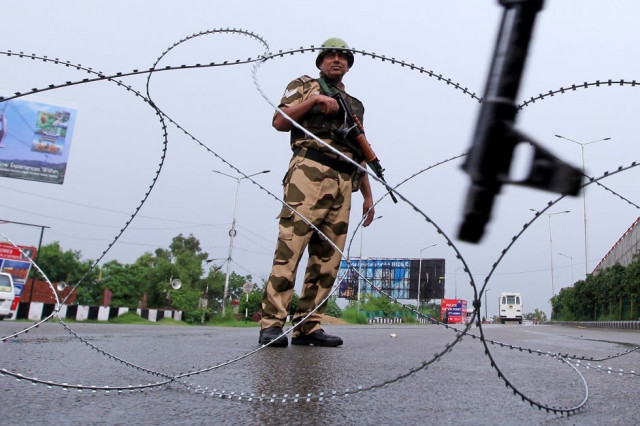India, the attention seeker
Pakistan cuts off diplomatic ties with India, other countries express concern regarding the issue

PHOTO: AFP
In the emerging regional power dynamics, coercive approaches have taken a backseat, and economic prowess is the driving force. The up and coming economic corridors in the region and adjoining areas (of which Pakistan is a part) are defining trends. The states forming part of the regional connectivity through the corridor or trade will be economically linked which, in turn, will impact their foreign policy orientation, as these countries will build their ties with foreign players according to their economic interests. In that situation, India may lose ground to major players in the region. Given this backdrop, the current Indian move could be a frustrated attempt to seek attention, and downplay the country’s stepping up towards regionalism. Moreover, the India-Pakistan relations have been central to the region’s peace. With the emerging corridors Pakistan’s position is likely to strengthen, as Gwadar seaport will be a trading channel for the adjoining countries and the greater region. The regional environment favours a stable and economically strong Pakistan, but this may not bode well with certain quarters. India has vociferously objected to the China-Pakistan Economic Corridor (CPEC) and has tried to sabotage the developmental work in Balochistan.
The energy projects and economic corridors require regional peace in order to be completed and become operational. This will bring in prosperity for the entire region, and the players will be able to counter transnational challenges effectively. However, this requires a regional approach and a vision to look beyond the legacy of the Partition. Neighbouring states need to unite to save the region from extremists and frustrate hijacking tactics. This is a challenging task for the entire region but through political and diplomatic maneuvering, Indian acts can be countered. The role of regional and international bodies in dissuading India from promulgating further tension is important. UN Secretary-General Antonio Guterres said, “Held Kashmir is a disputed territory recognised by the UN.” The international body needs to play a lead role in stopping New Delhi from more extreme acts. The Shanghai Cooperation Organisation (SCO), though not directly a party, can play a positive role in de-escalating the tension between member states — Pakistan and India.
Pakistan needs to fight for the Kashmir cause on political, legal and humane grounds. So far, the UN, the US, the UK, China and Turkey have expressed concern over the regional tension. It needs to be projected that Indian extremist acts are not confined to minorities living in the country, rather the Hindutva mindset is the cornerstone of India’s foreign policy. Such provocative attempts by India are a threat to the region’s peace and have reinforced extremist tendencies.
Published in The Express Tribune, August 18th, 2019.
Like Opinion & Editorial on Facebook, follow @ETOpEd on Twitter to receive all updates on all our daily pieces.
















COMMENTS
Comments are moderated and generally will be posted if they are on-topic and not abusive.
For more information, please see our Comments FAQ